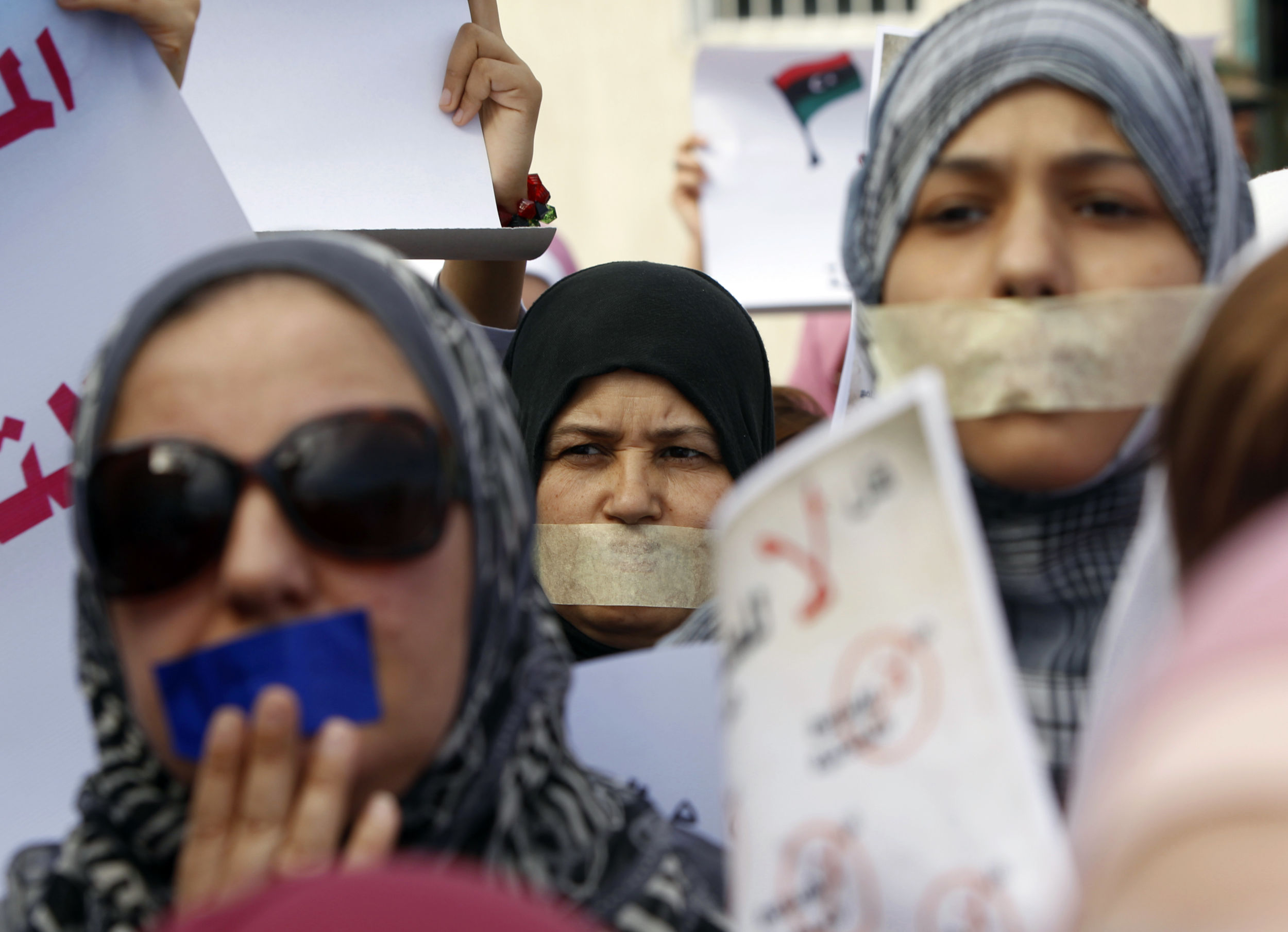On 25 November, the International Day for the Elimination of Violence Against Women, marking the launch of the 16 days of Activism against Gender-Based Violence (GBV), the International Commission of Jurists (ICJ) denounces the alarming prevalence of violence against women in Libya, compounded by political instability, harmful societal norms and insufficient legal protections.
.هذا البيان الصحفي متوفر باللغة العربية أيضاً
Violence against women in Libya in response to their legitimate ambition to take their rightful place in public and political life remains widespread . As a result of fear of and/or actual violence against them, many women self-censor and avoid public activism. Women are subjected to multiple human rights abuses, including domestic violence, forced marriage, sexual violence and targeted online harassment . Societal pressures, harmful gender stereotypes, stigma and discriminatory laws — such as Article 424 of the Penal Code, allowing rapists to marry their victims to escape prosecution — further entrench discrimination against women and impunity for human rights abuses against them. Victims and survivors often refrain from reporting abuses due to fear of retaliation, societal judgment and a lack of effective investigations to hold those responsible to account.
“The continued lack of accountability for violence against women and the threat of regressive practices are alarming reminders of the urgent need for the Libyan authorities to fulfill their legal obligations under international human rights law and standards guaranteeing respect for women’s human rights, including UN Security Council resolution 1325 on women and peace and security,” said Saïd Benarbia, ICJ Middle East and North Africa Program Director.
Women have been attacked and detained in Libya for their online activism and their legitimate exercise of their right to freedom of expression. For example, Ahlam al-Yamany and Haneen al-Abdali were arrested in 2023 for social media posts that the authorities deemed “indecent” and “harmful to public morals” and have been detained since then.
Women have also been abducted and killed for their political activism. For example, Hanan Al Barassi , a political activist, was shot dead in 2020 in Benghazi after she spoke out against the corruption of the Libyan Arab Armed Forces. Siham Sergiwa , a member of the House of Representatives, was abducted in Benghazi in 2019 and her whereabouts and fate remain unknown to date. Prior to her abduction, she had appealed for an end to the 2019 military operation on Tripoli and the formation of a civil government in a TV broadcast. To date, the authorities have failed to carry out effective investigations into these crimes, let alone to hold those responsible to account.
In November 2024, the Minister of Interior of the Government of National Unity, the internationally recognized government in the west of Libya, announced the re-establishment of a “morality” police and urged the imposition of stricter rules on public conduct, including requiring women and girls from the age of nine to wear the hijab – a garment worn by some Muslim women to cover their hair – restricting “modern hairstyles” and “clothing styles”, banning gender mixing in public areas, and imposing limitations on women traveling without a male chaperone.
Additionally, several articles of the Libyan Penal Code are discriminatory against women and girls and do not comply with international human rights laws and standards. For instance, Article 375 of the Penal Code allows for a reduction in punishment for a man found guilty of having killed his wife, daughter or sister if the crime was perpetrated immediately upon discovering that the victim engaged in extra-marital sex. Further, according to Law No. 24 of 2010 on Nationality , Libyan women do not have the same rights as men to pass their nationality onto their children or foreign spouses. These provisions not only entrench gender inequality but also perpetuate harmful gender stereotypes and practices that undermine women’s human rights and dignity, further obstructing Libya’s progress toward achieving gender equality and justice.
Eliminating violence against women is not only a moral imperative but a legal obligation under international human rights law and standards. The ICJ calls on the Libyan authorities to:
-
- Strengthen the domestic legal framework and enact a new law compliant with international human rights law and standards to address widespread and systematic violence against women, including online.
- Address systemic barriers preventing women from reporting violence, including lack of trust in law enforcement officials and the criminal justice system.
- Support civil society initiatives that raise awareness about gender-based violence and promote gender equality.
- Immediately suspend the reactivation and operation of the “morality” police.
The International Day for the Elimination of Violence Against Women serves as a stark reminder of the critical need to address the systemic and institutionalized barriers entrenching discrimination and abuses against women and girls in Libya. The Libyan authorities must take decisive action to protect women and girls from violence, hold perpetrators accountable and build a society rooted in equality and justice.
The United Nations Declaration on the Elimination of Violence Against Women defines violence against women as “any act of gender-based violence that results in, or is likely to result in, physical, sexual, or psychological harm or suffering to women, including threats of such acts, coercion or arbitrary deprivation of liberty, whether occurring in public or in private life.”
Contact
Saïd Benarbia, Director, ICJ Middle East and North Africa Programme; t: +41 22 979 3800, e: said.benarbia(a)icj.org
Nour Al Hajj, Communications & Advocacy Officer, ICJ Middle East and North Africa Programme; e: nour.alhajj(a)icj.org





